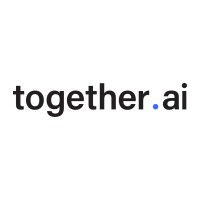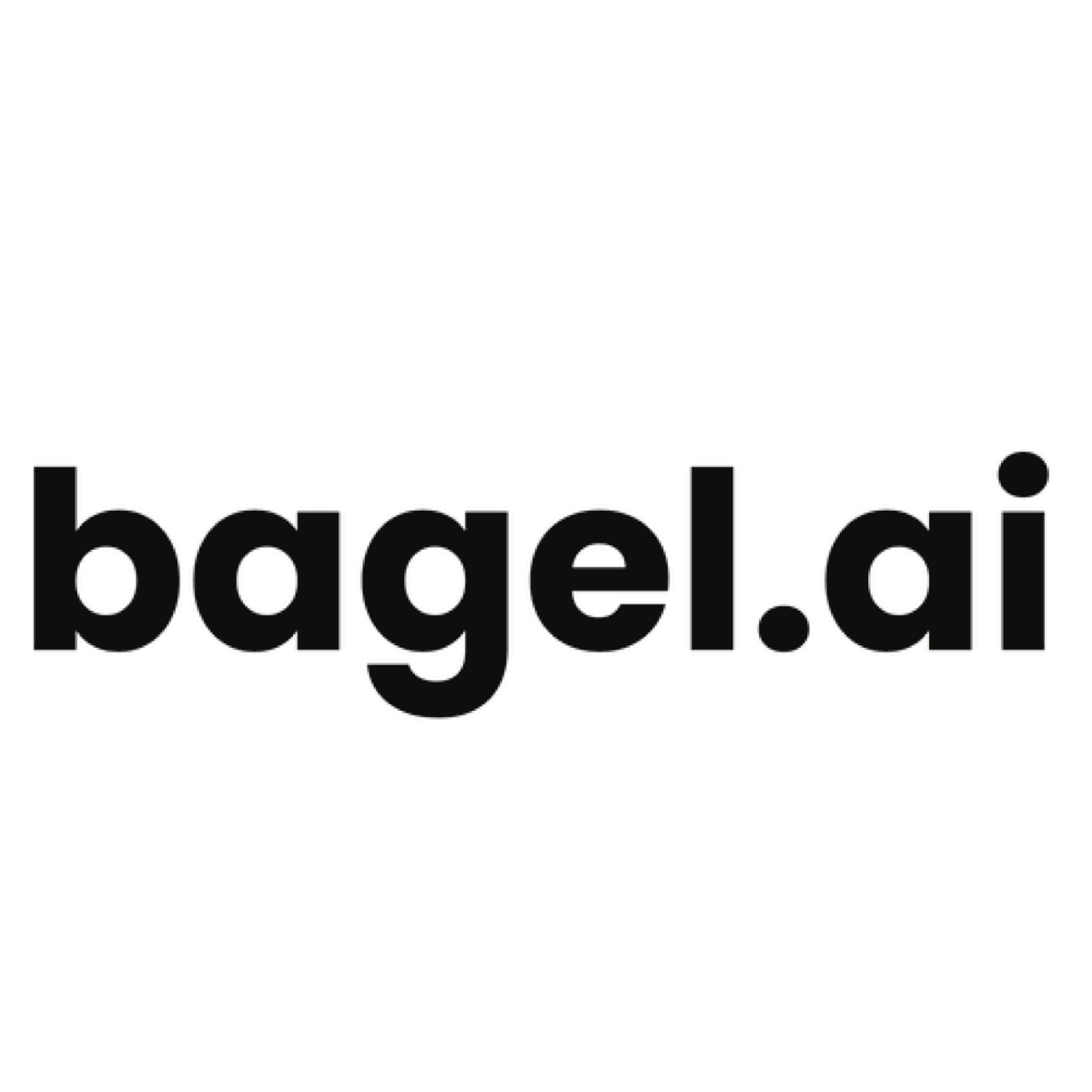What Is Generative AI Software?
Generative AI software, sometimes referred to as generative artificial intelligence, is a kind of computer program that generates new content or solutions without direct human input by utilizing sophisticated algorithms and machine learning techniques. Because it can replicate human ingenuity and problem-solving abilities, this cutting-edge technology has been increasingly popular in recent years.
Fundamentally, generative AI software creates new outputs by first identifying patterns and structures in a dataset and then using this knowledge to produce new outputs. Generative modeling is the term for this approach, which is frequently employed in disciplines including design, music, literature, and the arts. This program may produce engaging and distinctive outputs that are frequently indistinguishable from human-produced material by evaluating and comprehending current content.
Scalability for managing big and complicated datasets, learning and adaptability, and the capacity to produce diverse outputs depending on various inputs are some of the primary characteristics of generative AI software. Because of this, it's a useful tool for many different businesses, such as marketing, e-commerce, banking, and healthcare. The possibility for time and money savings is one advantage of utilizing generative AI software.
Businesses and organizations can simplify operations and lessen the need for manual and repetitive work by having the capacity to produce new outputs rapidly and effectively. It is essential to carefully investigate and weigh your options when thinking about investing in generative AI software to make sure it meets your unique requirements.
Seek out software with capabilities that can be customized, such the ability to manage output variances and modify the automation level. To sum up, generative AI software is an innovative technology that has the ability to completely transform a variety of sectors by offering effective and innovative solutions. Businesses and organizations may remain ahead of the competition and spur innovation in their industries by utilizing generative AI.
What Are The Recent Trends In Generative AI Software?
In recent years, generative AI software has advanced quickly, enabling both individuals and companies to easily produce creative and customized content. The market for generative AI has grown dramatically in tandem with the ongoing increase in demand for intelligent and creative software. The growing application of natural language processing (NLP) technology is one of the noteworthy developments in the field of generative AI software.\
This enables the software to comprehend and evaluate human language, which facilitates user interaction and enables the software to provide outputs that are more accurate and human-like. Combining big data analytics and generative AI software is another new trend. These systems may provide highly relevant and tailored content by using enormous amounts of data, giving users a more immersive and interesting experience.
The development of generative AI software has also been significantly impacted by the emergence of deep learning algorithms. The program can train itself and get better over time thanks to these sophisticated algorithms, producing results that are increasingly accurate and lifelike. The ethical ramifications of generative AI software have also drawn more attention.
Efforts have been made to ensure ethical and responsible use of the technology, such as by adopting transparent and explainable processes, because these systems have the ability to produce convincing fake content. Additionally, it is anticipated that generative AI software will continue to be used in a variety of sectors in the years to come, such as marketing, entertainment, and healthcare.
This growth in application domains demonstrates the adaptability and possible influence of generative AI technologies. To sum up, the latest developments in generative AI software show a dramatic change toward more sophisticated and ethical technology, made possible by cutting-edge algorithms and an increasing emphasis on ethics. Customers can anticipate seeing even more advancements and discoveries in the field of generative AI software as this market develops further.
Benefits Of Using Generative AI Software
Artificial intelligence (AI) is growing in popularity across a range of industries as technology develops and advances. Generative AI software is among the most recent developments in AI technology. This state-of-the-art program creates new and unique content, including text, graphics, and even music, using algorithms.
We'll go over the advantages of utilizing generative AI software in this buyer's guide, as well as why it might revolutionize your company.
1. Enhanced Productivity And Efficiency: The efficiency and productivity that generative AI software offers your company is one of its biggest benefits. Time and resources that would have been used for manual content development can be saved by having the ability to create material fast and on demand. This boosts overall productivity by freeing up your team to concentrate on other crucial activities.
2. High-Quality Material: The goal of generative AI software is to create unique, high-quality material. It produces accurate and reliable results by removing the possibility of bias and human mistake. This guarantees that the software generates high-quality material, which can be advantageous for branding and marketing objectives.
3. Cost Savings: Using traditional content development techniques can be expensive, particularly if you need to hire qualified experts. Because generative AI software does not require manual work, it provides a more affordable option. You can create high-quality material on a regular basis without spending extra money if you purchase the software once.
4. Diverse And Customizable Material: You can teach the algorithms to create material that suits your unique requirements and aesthetic preferences thanks to generative AI software. This degree of customization also applies to creating a variety of material, which will help you stand out from the competition and attract a larger audience.
5. Constantly Changing Technology: As artificial intelligence (AI) technology develops, generative AI software also changes, enhancing and extending its capabilities over time. This implies that you may anticipate receiving updates and improvements even after you buy the program, which will keep your company on the cutting edge of technology.
Important Factors To Consider While Purchasing Generative AI Software?
To make sure you are making an informed and prudent investment, there are a few critical considerations to make when thinking about buying generative AI software.
When selecting generative AI software, keep the following aspects in mind:
1. Purpose And Goals: It is crucial to establish your purpose and goals for using generative AI software before you begin using it. Are you trying to make better decisions, increase creativity, or automate tasks? Making a more focused decision and reducing your options will be made easier if you have a clear idea of your goals.
2. Machine Learning Capabilities: To provide novel solutions, generative AI software mostly depends on machine learning methods. Therefore, it is essential to take into account the software's machine learning capabilities. Examine the kinds of machine learning methods employed, the amount and caliber of data needed, and the precision of the results produced.
3. Customization And Flexibility: Every organization has different needs and difficulties. As a result, selecting generative AI software that offers flexibility and customization is essential. Are there input and parameter choices in the software? Is it possible to combine it with your current systems? Before making a purchase, you should ask these important questions.
4. User-Friendly Interface: The capacity of generative AI software to streamline intricate procedures is among its most important advantages. However, if the software's user interface is difficult to understand, it might impede productivity and lead to irritation. To get the most out of software, look for an interface that is easy to use and intuitive.
5. Performance And Scalability: Your generative AI software should grow and change with your company. The software's scalability and performance are important factors to take into account. Can it manage different and big datasets? Is it able to manage complicated tasks? These are crucial elements to take into account in order to guarantee the software's long-term efficacy.
6. Expert Help: Having trustworthy technical help on hand in case of any problems or inquiries is essential when making any technological investments. Seek out a vendor of generative AI software that provides top-notch customer service, including training, troubleshooting, and frequent upgrades. You can select the ideal generative AI software for your company's requirements by carefully weighing these variables. Before making a purchase, don't forget to do extensive research and weigh your options to make sure you're receiving the greatest deal.
What Are The Key Features To Look For In Generative AI Software?
A quickly expanding subset of artificial intelligence technology is generative AI software, which uses algorithms to create original, new content from data. Customers should be aware of the key characteristics to consider when making a purchase, as generative AI continues to be implemented in various industries and enterprises.
We will go over the important factors to take into account while choosing the best generative AI software for your requirements.
1. Capabilities For Data Input: Giving generative AI software a data source is the first step in deploying it. The software's capacity to manage various data input formats, including text, photos, audio, and video, is therefore an essential characteristic to search for. This will guarantee that the program can handle your data efficiently and produce precise results.
2. Capabilities For Training And Learning: Software that uses generative AI learns from data and applies that knowledge to produce new content. Seek out software with strong learning and training features, such neural networks and deep learning algorithms. As a result, the program will be able to adjust to new data and continuously enhance its output, producing information that is more accurate and efficient.
3. Personalization Choices: When it comes to content creation, every company and sector has different requirements and preferences. Selecting generative AI software with customizable options is so essential. To better meet your unique needs, look for software that lets you change features and settings like vocabulary, style, or tone.
4. The Ability To Scale Your company's data and content requirements will expand along with it. The scalability of the generative AI software you use must therefore be taken into account. Can it manage big data volumes while still producing results of a high caliber? To be sure the software can adapt to your changing demands, look for scalable solutions, such as cloud-based possibilities.
5. Accuracy And Performance Generative: AI software's ultimate objective is to generate precise and high-quality information. Therefore, it is essential to assess the software's correctness and effectiveness before to purchase. Choose software that offers demo or trial versions for testing and has a track record of success.
6. Integration With Current Frameworks: To improve its functionality and optimize your workflow, generative AI software can be integrated with other tools and systems. To get the most out of the software you select, be sure it can easily interact with your current systems, including content management systems.
7. Upkeep And Assistance Generative: AI software may need upgrades or run into technical problems like any other program. As a result, the software provider's degree of support and maintenance must be taken into account. To guarantee seamless functioning and optimal advantages, look for software that provides dependable customer assistance and frequent upgrades.
Why Do Businesses Need Generative AI Software?
Long-term success in today's fast-paced and dynamic corporate environment depends on one's capacity for continuous innovation and the generation of novel, original ideas. Generative AI software is useful in this situation. This innovative technology gives firms a competitive edge by utilizing artificial intelligence to provide original concepts, designs, and content.
The ability of generative AI software to save time and money is one of the main reasons why companies need it. Conventional approaches to design and concept generation necessitate trial and error, brainstorming, and in-depth study. In contrast, generative AI software leverages machine learning and sophisticated algorithms to generate a large number of high-quality ideas in a fraction of the time.
In addition to saving important time, this allows companies to investigate a greater variety of concepts and opportunities. Furthermore, generative AI software provides a degree of originality and creativity that could be challenging to attain with just human concepts. AI-powered generators can generate novel and distinctive ideas that humans might not have considered by sifting through enormous volumes of data and seeing patterns and trends.
This allows companies to reach new markets and achieve greater success with their goods and services. Generative AI software can assist companies tailor their products for their target market in addition to saving time and increasing creativity. AI-powered generators may provide unique designs and content that appeal to specific customers by utilizing data-driven insights and user preferences.
In addition to improving the general consumer experience, this increases sales and fosters brand loyalty. Last but not least, generative AI software can help companies remain on top of trends. Businesses may remain competitive and relevant in their sector if they can consistently come up with new ideas and adjust to shifting trends.
Businesses can swiftly change course and react to new market needs because to this flexibility, which also gives them an advantage over rivals. To sum up, generative AI software helps organizations save time and money, increase innovation, personalize their products, and stay ahead of the curve. It is a useful tool for companies trying to stay ahead in the fast-paced business environment of today because of its capacity to produce ideas quickly and access fresh, creative notions.
How Much Time Is Required To Implement Generative AI Software?
A number of variables, including the software's complexity, the volume and kind of data being used, and the user's particular goals and objectives, might affect how long it takes to create generative AI software. Depending on the user's technical skill and software expertise, the first setup and configuration of the program might typically take a few hours to a few days.
The amount of time needed to train the generative AI model after initial setup might vary from a few hours for easier tasks to several weeks for larger and more complicated projects. Because it enables the AI model to learn and adjust to the supplied data, this training phase is essential for gradually increasing the model's accuracy and performance. The objectives and expectations of the user of the generative AI program must also be taken into account.
The implementation time could be less if the user is searching for basic automation activities as opposed to more complex features like computer vision or natural language processing. Implementation time may also be impacted by how generative AI software is integrated with current systems and procedures. It could take longer to guarantee smooth operation and compatibility if the program needs to be integrated with other tools and platforms.
What Is The Level Of Customization Available In Generative AI Software?
Numerous customization choices provided by generative AI software enable both individuals and enterprises to adapt AI solutions to their own requirements. Generally speaking, the majority of generative AI software offers a great degree of freedom and control, albeit this degree of customisation might vary according on the software and its capabilities.
The ability to train the AI model with certain data sets that are pertinent to the user's industry or use case is one of the main features of customization in generative AI software. This enables a more precise and customized output that is suited to the user's particular requirements and objectives. Furthermore, some software gives users even more control over the outcome by allowing them to adjust the model's parameters and algorithms.
The capacity to integrate generative AI software with current tools and systems is another essential component of customization. This makes AI technology a more effective and efficient option by enabling organizations to integrate it effortlessly into their workflows and operations. Users can also mix generative AI with other technologies, including machine learning, through custom connectors to produce a more complete and reliable solution.
Additionally, a lot of generative AI software has user interfaces that can be customized, which makes it simple for people to interact and navigate the system. This includes the ability to change the settings, preferences, and visualizations to fit the needs and tastes of the user. Custom dashboards can even be created with some technologies, providing customers with a more relevant and individualized experience.
Some generative AI software also allows for the development of unique features and functionality in addition to these customisation choices. This can involve creating original plugins and add-ons, integrating proprietary algorithms, or even developing custom AI models. These choices can further expand the software's capabilities and enable a greater degree of customisation.
Which Industries Can Benefit The Most From Generative AI Software?
Generative artificial intelligence (AI) software, sometimes referred to as generative adversarial networks (GANs), is a kind of AI technology that creates new, unique data from preexisting datasets using machine learning methods. This cutting-edge software has been causing a stir across a number of industries, transforming how companies run and opening up countless opportunities for expansion and success.
Which sectors stand to gain the most from generative AI software, then? Let's investigate.
1. Entertainment And Gaming Sector: The entertainment and gaming sector is one of the primary sectors that generative AI software has had a major impact on. GANs' capacity to produce novel and varied media content has created countless possibilities for producing realistic and immersive gaming experiences. GANs have transformed the gaming business and improved user engagement by producing realistic characters and game landscapes as well as original tales.
2. Design And Creative Industry: For designers and other creative professionals, coming up with fresh and original design concepts has always been difficult. But the game has changed thanks to generative AI software, which offers a potent tool for creating original images, designs, and other visual content. This produces beautiful and unique designs by expediting the design process and enabling greater creative flexibility and experimentation.
3. Manufacturing And Product Development: The manufacturing and product development sectors have also embraced generative AI software. GANs can provide new ideas and prototypes that are more economical and efficient by examining current materials and products. This is a useful tool for producers since it greatly expedites the product development process and lessens the need for manual work.
4. Healthcare Sector: GANs find application in the healthcare sector as well, specifically in medical imaging and research. Generative AI software can help with disease diagnosis and the development of individualized treatment strategies by producing and analyzing new medical images. This technology has the power to transform the healthcare industry and enhance patient outcomes.
5. Retail And E-commerce Sector: Generative AI software has significant potential benefits for the retail and e-commerce sector as well. GANs can improve the shopping experience for customers and boost revenues by producing novel and tailored product recommendations. Additionally, they can be used to design new products and even give customers virtual try-on experiences.
Conclusion
To sum up, generative AI software has shown itself to be a useful instrument for companies trying to improve their decision-making, increase their creativity, and streamline their operations. This technology's capacity to provide original and creative concepts, solutions, and material has created countless chances for sectors including music, design, and advertising.
The promise and influence of generative AI software are undeniable, thanks to its sophisticated algorithms and intuitive user interfaces. However, it's crucial to thoroughly consider your unique requirements, financial constraints, and the features provided by various software providers before making a purchase. We hope that this buyer's guide has given you useful information and insights to help you choose the finest generative AI software for your company.
Always do your homework and weigh all the options before purchasing any software. As you attempt to integrate generative AI into your workflows, we wish you luck.






















